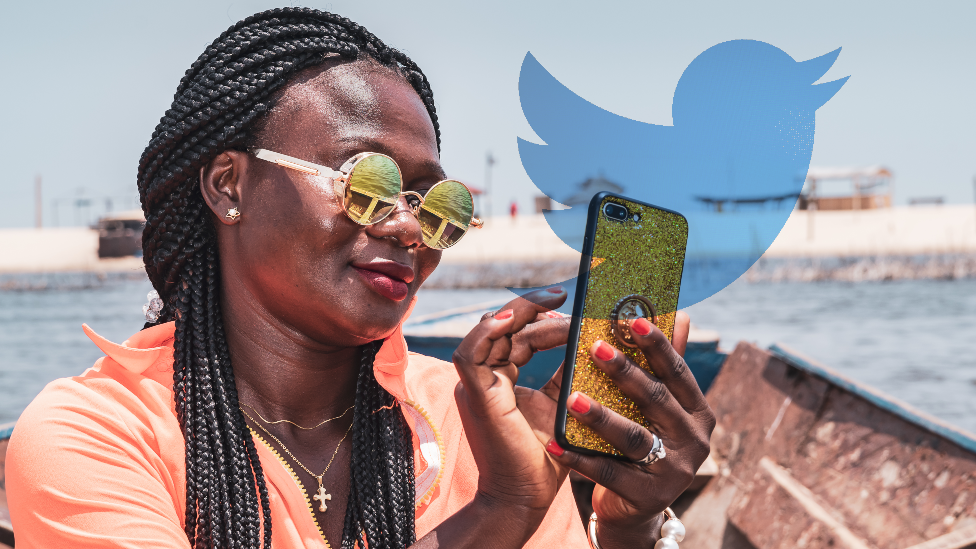Nigeria's Twitter ban: Government orders prosecution of violators
- Published
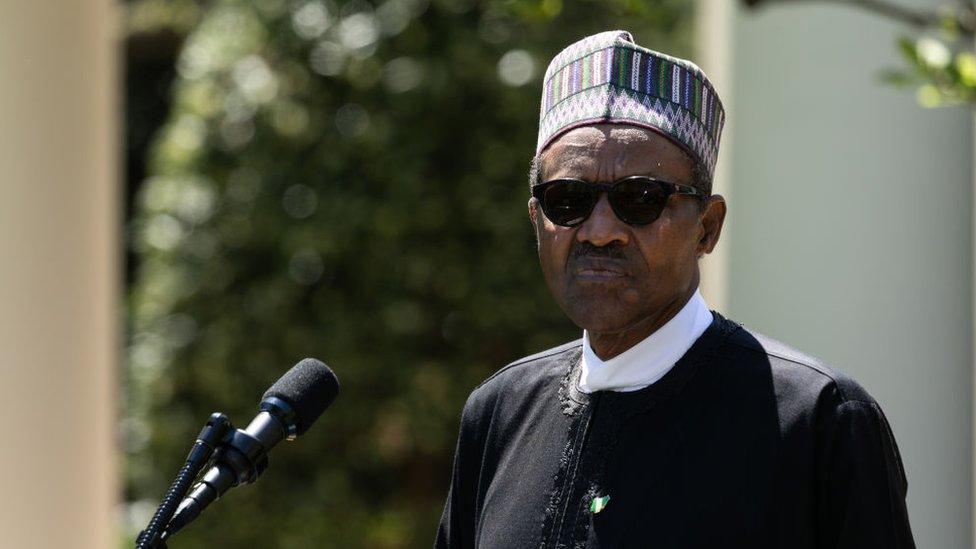
Twitter took down a tweet by President Muhammadu Buhari earlier in the week, though no direct connection has been drawn
Nigeria will prosecute anyone found to have breached the country's ban on the social media firm Twitter, a government spokesperson has told the BBC.
The government announced on Friday it was suspending Twitter's operations in the country.
Mobile phone networks blocked access after being ordered to do so, but some users are getting around the ban.
The move comes after Twitter deleted a tweet by President Muhammadu Buhari for breaching the site's rules.
Some users saw his post, which referred to Nigeria's civil war four decades ago, as a veiled threat towards a secessionist movement in the south-east of the country
His government said on Saturday the tweet's removal was "disappointing", but not the only reason for the "temporary" suspension.
"There has been a litany of problems with the social media platform in Nigeria, where misinformation and fake news spread through it have had real world violent consequences," the government said.
Twitter said the announcement of a ban on Friday by Information Minister Lai Mohammed was "deeply concerning".
The move also brought widespread condemnation from human rights groups and international powers, who say it will limit free speech in Nigeria.
In a statement, Justice Minister Abubakar Malami said he had "directed for immediate prosecution of offenders of the Federal Government ban on Twitter operations in Nigeria", telling the public prosecutor to "swing into action".
The message was targeted at both corporations and individuals, the minister's spokesperson Umar Gwandu told the BBC.
The government of Nigeria alleges that Twitter was being used to undermine "Nigeria's corporate existence".
The platform was allowing "the spread of religious, racist, xenophobic and false messages" that "could tear some countries apart", a spokesperson said.
The national broadcasting regulator, NBC, had been told to begin "licensing all internet streaming services and social media operations in Nigeria", a government statement said.
Earlier, the professional body of Nigerian mobile phone operators - known as Alton - confirmed they had been told to stop people getting on to Twitter. The group said its members had complied with the government order due to "national interest provisions" in Nigerian telecoms law and licensing terms.
But Alton also said that it backed the UN's position that the right to communicate both offline and online should be protected.

A long time coming
Analysis by Nduka Orjinmo, BBC News, Abuja
The Nigerian government has toyed with the idea of regulating social media in the country, and this administration has been obsessed with the idea since it came into office in 2015. Deleting the president's tweet, however, was seen as the final straw.
But it was the role Twitter played in the #EndSars anti-police brutality protests which shook Nigeria last year that truly sealed its fate.
The demonstrations were mostly organised on the platform and the company's CEO, Jack Dorsey, encouraged donations to one of the leading groups of organisers. A special emoji was also created for the protests.
Twitter helped give Nigeria's many youths a voice. But in the eyes of the government, the company's role in galvanising the country's young population was a line crossed.
Yet the government appears not to have reckoned with the ingenuity of #EndSars protesters. People are already downloading VPNs to bypass the block when it happens.

On Saturday, BBC reporters in Lagos and Abuja said they were unable to connect to Twitter through two of the country's largest phone networks: MTN and Airtel.
Internet monitoring site Netblocks reported that Twitter was restricted , externalon all the leading networks.
Access was still possible through some wi-fi providers, but this is not the most common way to connect to the internet in Nigeria.
You may also be interested in:
Kiki, a student from Lagos, Nigeria can’t wait for 2020 to be over
- Published26 May 2019
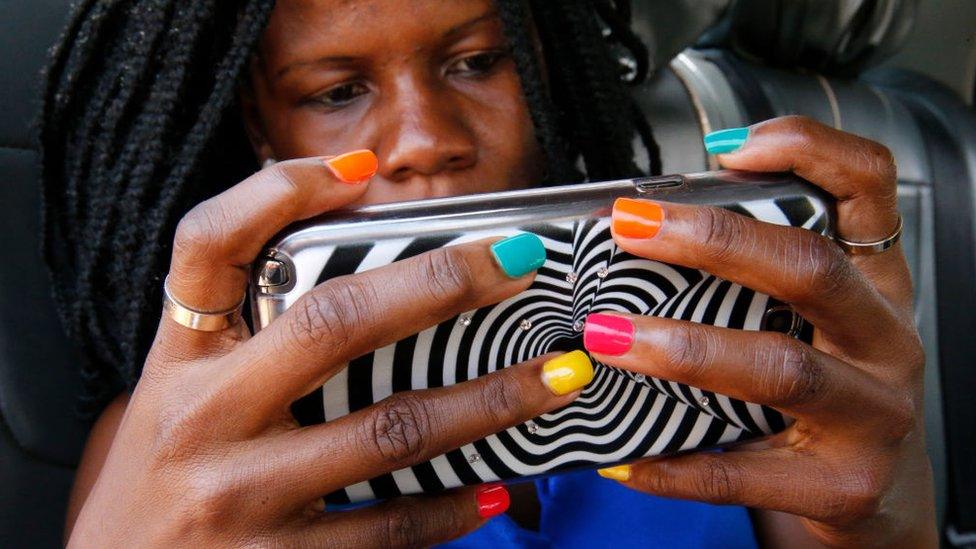
- Published5 June 2021
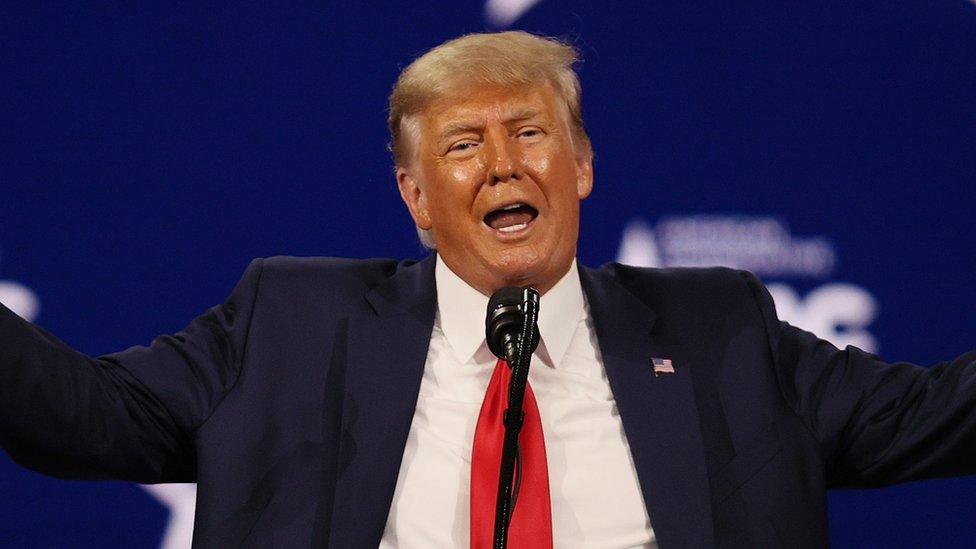
- Published2 June 2021
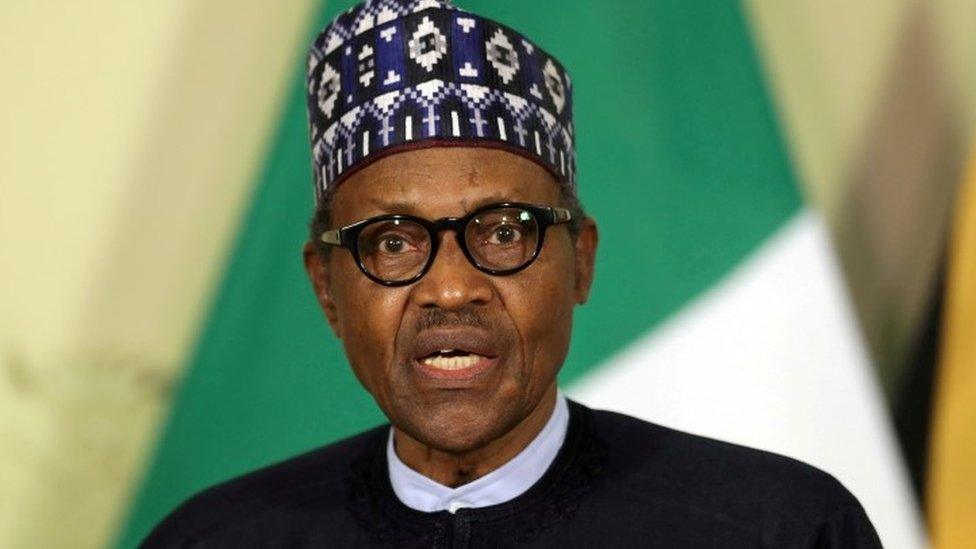
- Published25 April 2021
